“To Write a Journey, Follow These Steps”
dispatches from the 2025 Maverick Lakes Osprey Ultra 25k
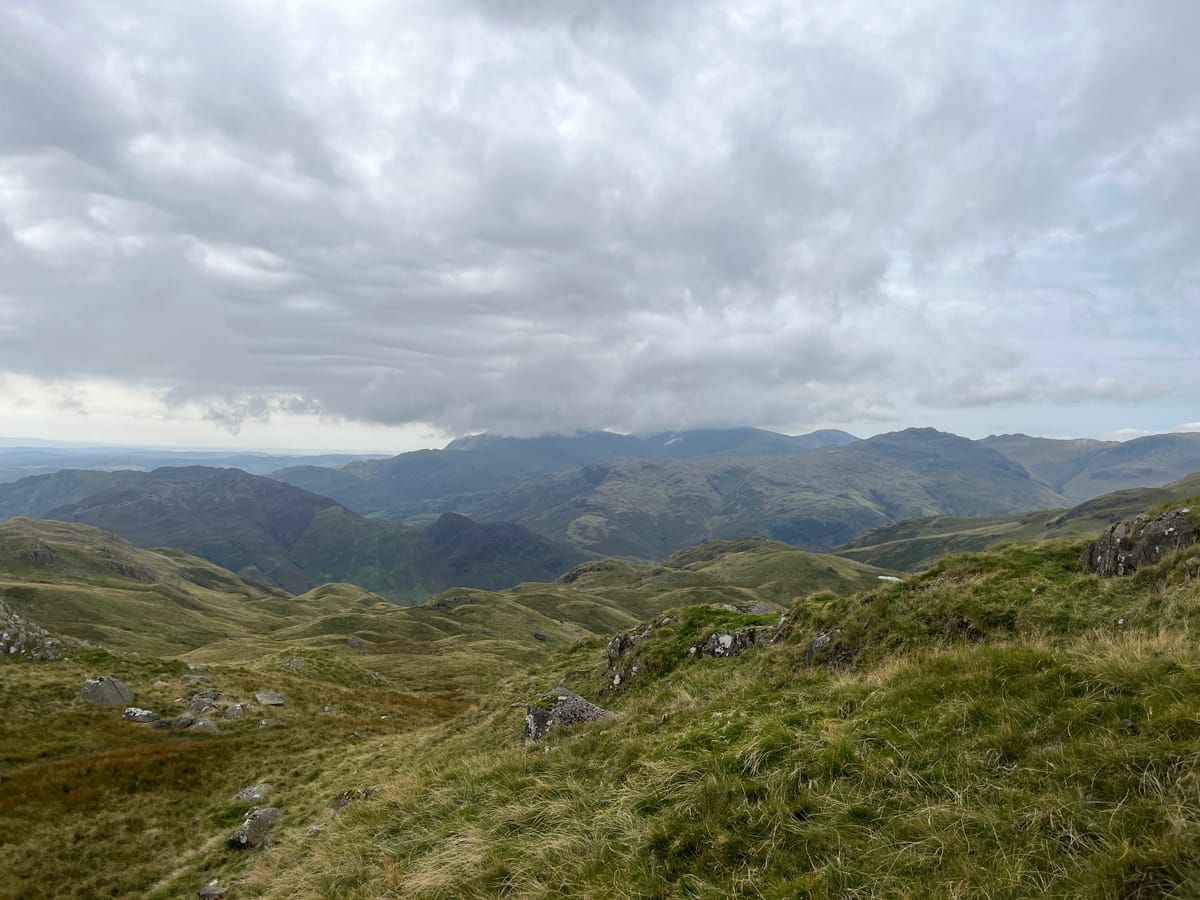

“1. First, choose a hero, someone who is likable but flawed. Imagine a world that will throw the hero into a series of complications for which he or she is completely unprepared.”[1]
Gee. Imagine. Let us, just.
The Lake District, let's say a miles away from home. The scenic wilds of the UK, mostly populated by tourists, but preserved by judicious purchasing of land by Beatrix Potter with money from her Peter Rabbit sales.
The air, cool. The sky, gray.
The day before the race, Grace and I arrived at our campsite. I set up my never-used one-man tent, which Grace proceeded to call a coffin for the duration of the weekend. (She set up her own spacious, luxury hotel beside mine in less than half the time.)
A pre-amble, attempt to walk to another tarn nearby. Unsuccessful, but a preview of the off-roading we would do. Boulders. Streams. Slugs.
Then, she showed me how to use my new gas camping stove, which I had also never used before. (I could say this was because I like to eat over an open flame, but it would only be half true.) Instead of eating the probably harmless but never tried before packet meal over my new gas camping stove, I swerved and stuck to something familiar—a carb-heavy dose of rice and tuna, with spicy olives just for fun. (Not that spicy.)
The odd thing about camping is that when the sun goes down, if you don't have a fire, you really don't have much else to do. We read our books on our mats in the grass (idyllic) and when it got too dark, we read with our headlamps on. Grace was reading The Safekeep. I was reading Blood Meridian. But by 9 PM, I was tired, and it was cold, and it was even harder to read. I got into my coffin, tossed and turned and shivered until I slipped into a delirium something akin to sleep.
Nevertheless, I woke up the morning of the race feeling good about the future, if nervous. I had packed meticulously. My running vest, my gels, my salt tabs, a careful schedule of when to eat it all.
I was utterly prepared. What could go wrong?
“2. Provide a quirky helper, and make a list of trickster figures who have motivation for blocking the hero’s quest. What do they—the tricksters or villains—lose if the hero gains the gift?”
I will say, first, that everyone is the hero of their own story and that Grace was so much more than a quirky helper, though all of my friends are quirky and she was indeed a massive help to me, especially in the aftermath of the battle when I couldn’t text or walk without seizing—but I am getting ahead of myself.
If she were telling this story, I would be the quirky helper who taught her how to use a running vest. Better yet, I would be the ornery trickster who got her into this mess in the first place.
More importantly, though, Grace[2] came with a greater gift—not only her own years of experience in the mountains and of the area, but the gift of a passage from Nan Shepherd’s book, The Living Mountain:
To pit oneself against the mountain is necessary for every climber: to pit oneself merely against other players, and make a race of it, is to reduce to the level of a game what is essentially an experience. Yet what a race-course for these boys to choose! To know the hills and their own bodies, well enough to dare the exploit is their real achievement.
We threw this passage back and forth at each other all weekend, different sections in different permutations.
I thought about it often, what it meant to be in this experience. Especially coupled with Christine Rosen’s The Extinction of Experience, which has made me think about how I relate to the outer world, and why. For whom.
So much of life outside of the mountains—in the cityscapes, in the computers, the careers—it’s all about pitting oneself merely against other players. Even when we don’t mean it to be, we get so swept up in the game that we are told is necessary that we lose the experience.
Yet what a race-course for these boys to choose!
I made villains in my own mind of the other runners. Caught hold of them in my mind’s eye, marking their clothing as they passed me or I passed them so that I could goad myself on for the sake of beating them. White shirt bro. Purple shirt with poles. Woman with poles. Turquoise no poles. It didn’t matter that out loud we shared commiseration and encouragement.
There was one guide who told me I had reached the top of the first climb. (They were angels, all of them—without whom I would have wondered hopelessly forever, running the wrong direction into oblivion.) Throughout the second climb, I cursed him because I felt betrayed.
The hikers and tourists shouted encouragement as we passed.
So many people on this journey were there to help (probably quirky all of them; why else were they out there, with us?) and it was a beautiful thing.
It was my own mind that was preoccupied with making a villain out of everything because I was in such a difficult place. (In fact, if I had rested at the aid station, I might have finished happier, in less pain.)
“3. Imagine the list of challenges carefully so that you can arrange them in a compelling order.”
“a. Brainstorm various challenges that might confront your hero.”
- A missing sports bra—no, that's stacking the deck too hard--but that's the point of a good story! No sports bra it is!
- What if she doesn't have the pre-run ahem evacuation?
- No, that's too cruel, but let's make it really close, like maybe she's in the porta-potty when the announcer calls everyone to the starting line?
- Okay, the first thing is the big mountain, that's gonna top out at 625m. That's tough, but let's make her do it with her hands! Better, yes. Poles? Everyone else has poles. No, she doesn't get poles.
- No, actually, the first thing is the side stitch that she was trying to prevent but started almost as soon as she started running
- No, actually, the first thing will be realizing as she runs out of the gate that the salt tabs are not in the vest; she’ll realize that they must be, instead, in the backpack stashed at the bag drop
- A twisted ankle
- Twist the ankle again?
- The aid station at 10k/6mi doesn’t have the promised top-up gels (though it does have bananas, fruit, solid food) (she has not trained on solid food 😈)
- Oh, what if she twisted the OTHER ankle, too? And this one will be worse.
- There will be some muscle cramps, let us say, around the halfway mark, just after we pass the first aid station, a little in the inner thigh, just a twinge in the right quad
- How about cramps also in the left quad? Just a little, that’s alright
- The second and final aid station at 20k/12mi will be up a hill.
“b. Consider interesting settings that will be visually and metaphorically rich as your characters embark on their quest.”
Is this the part where I say that the views were spectacular? That it was all worth it because of this?
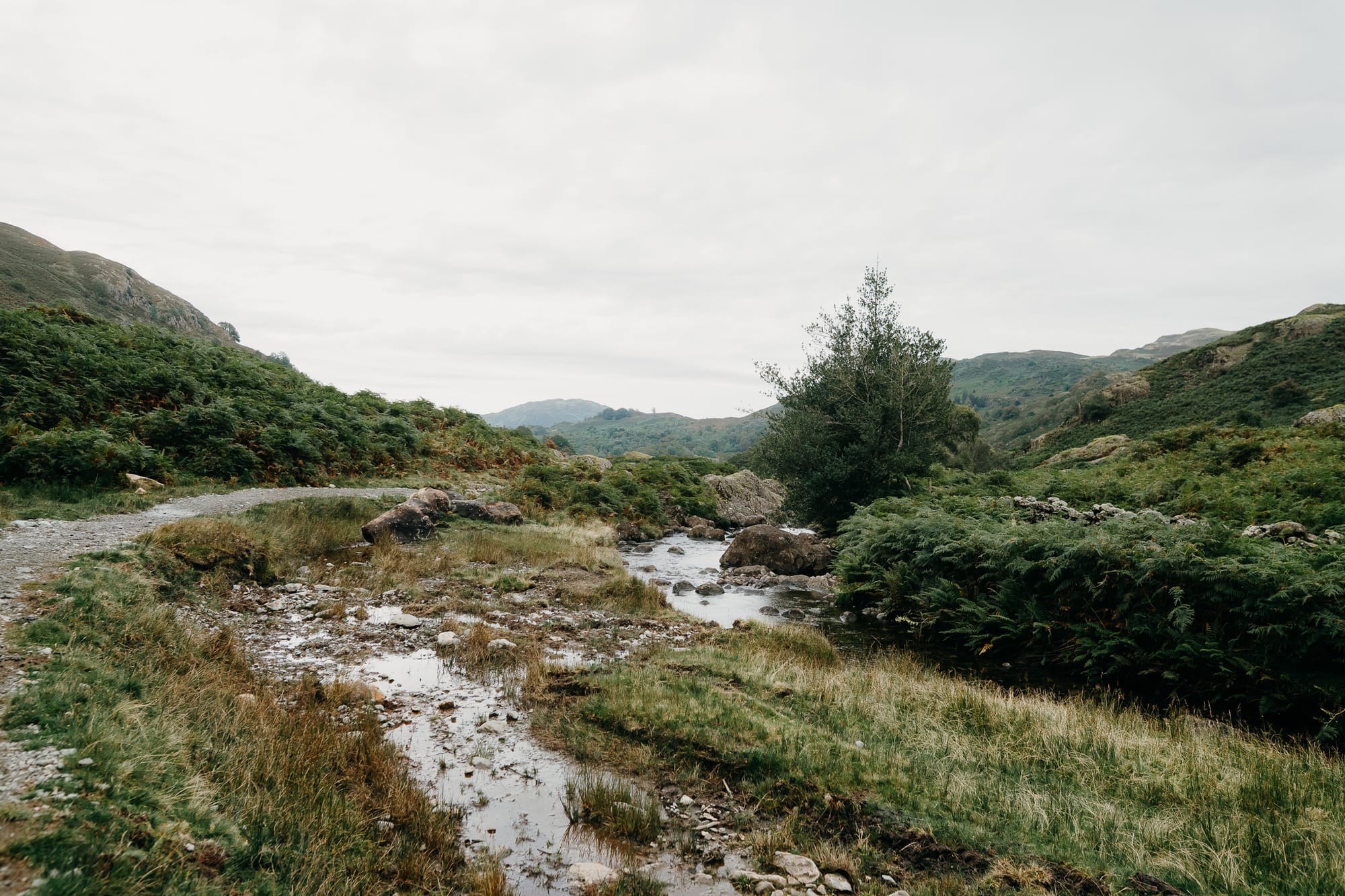
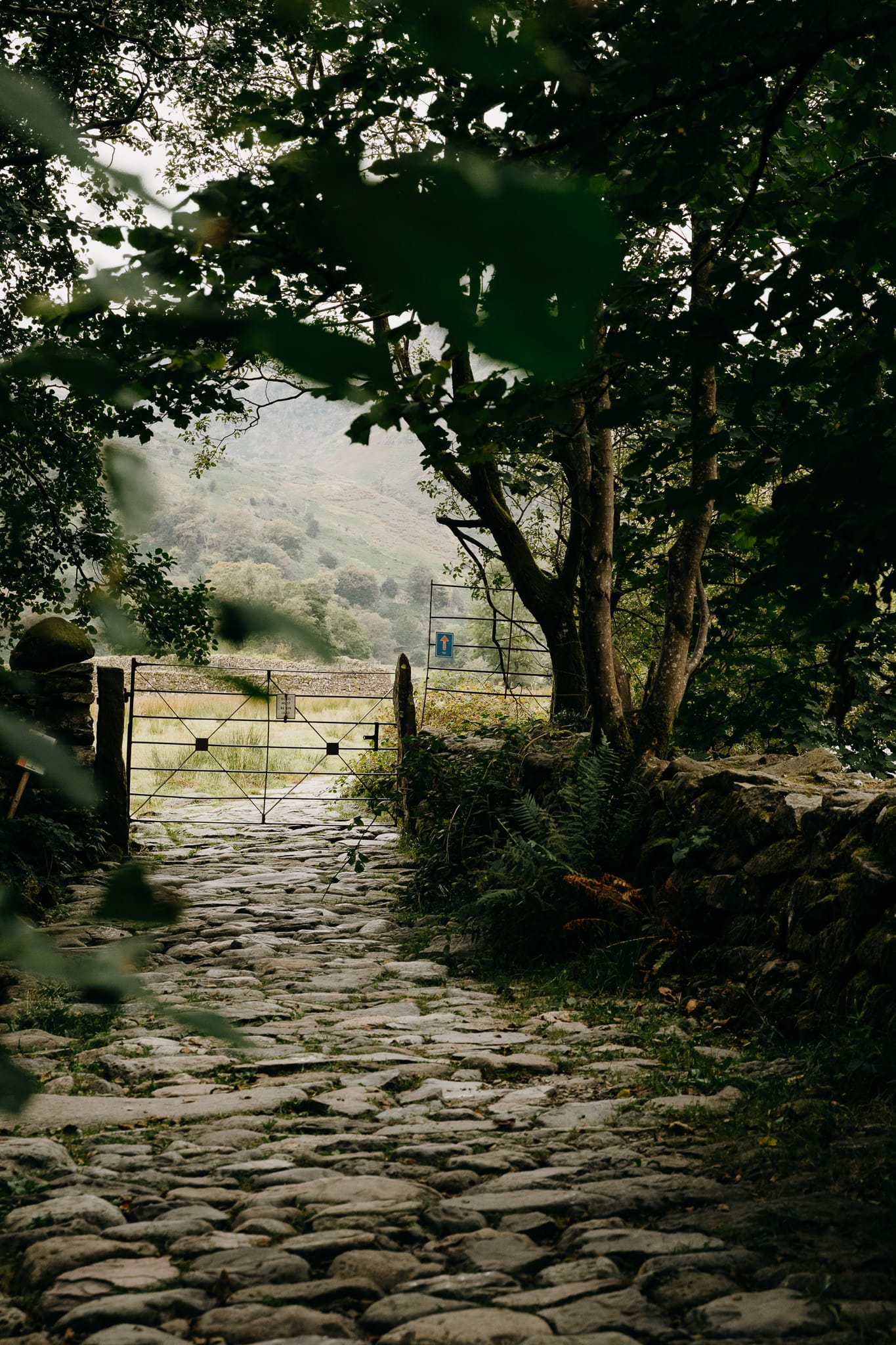
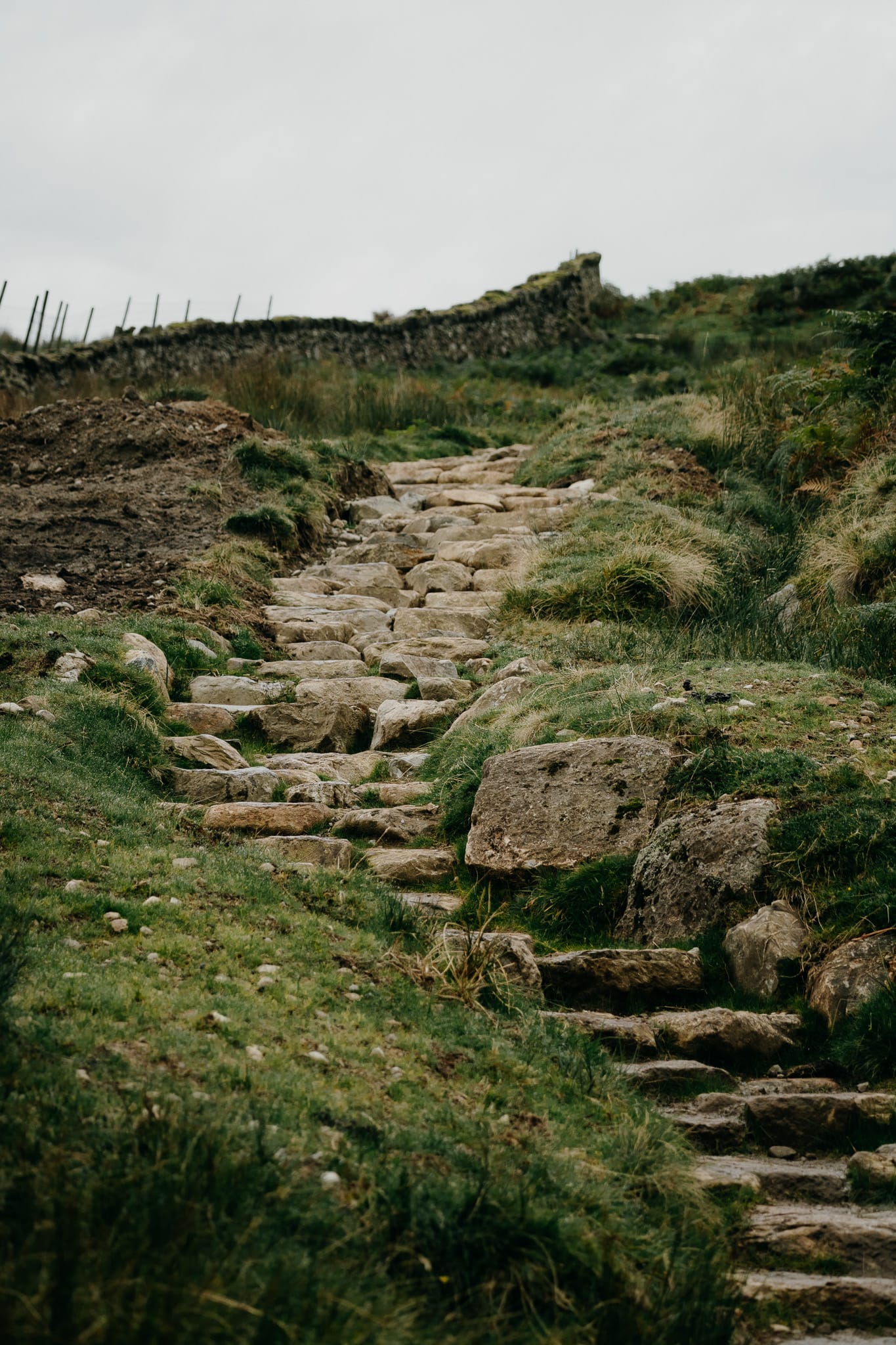
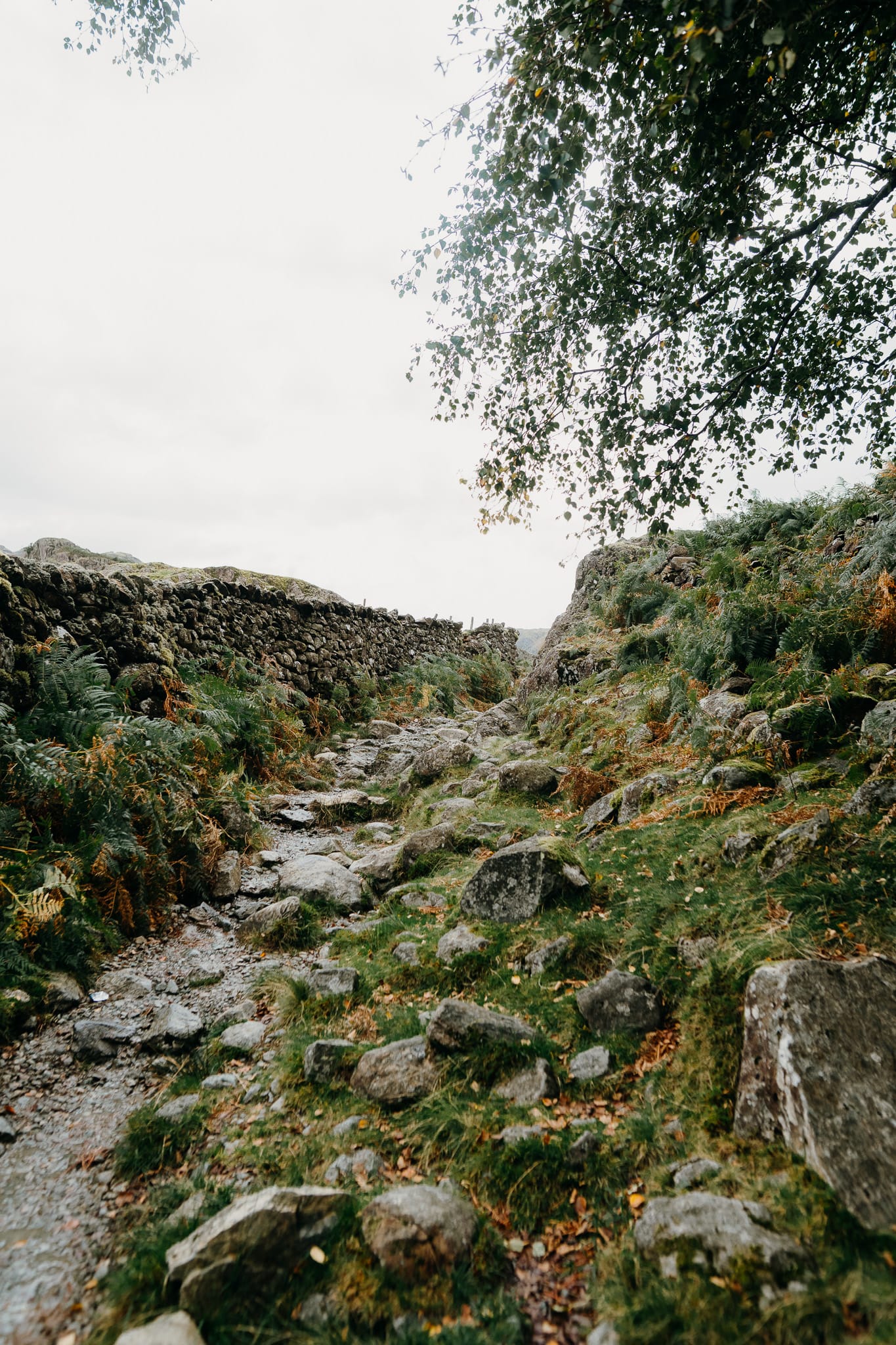
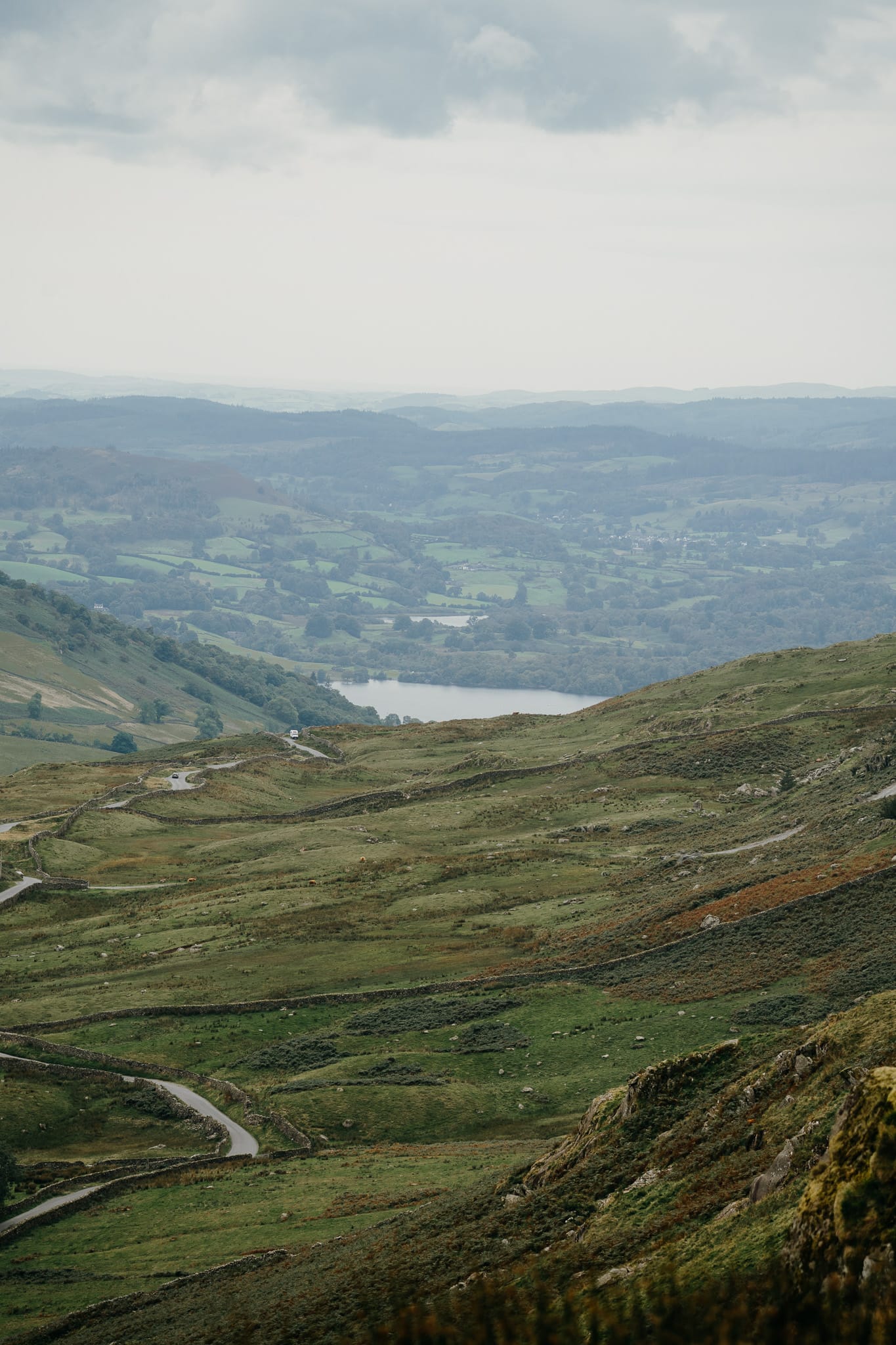
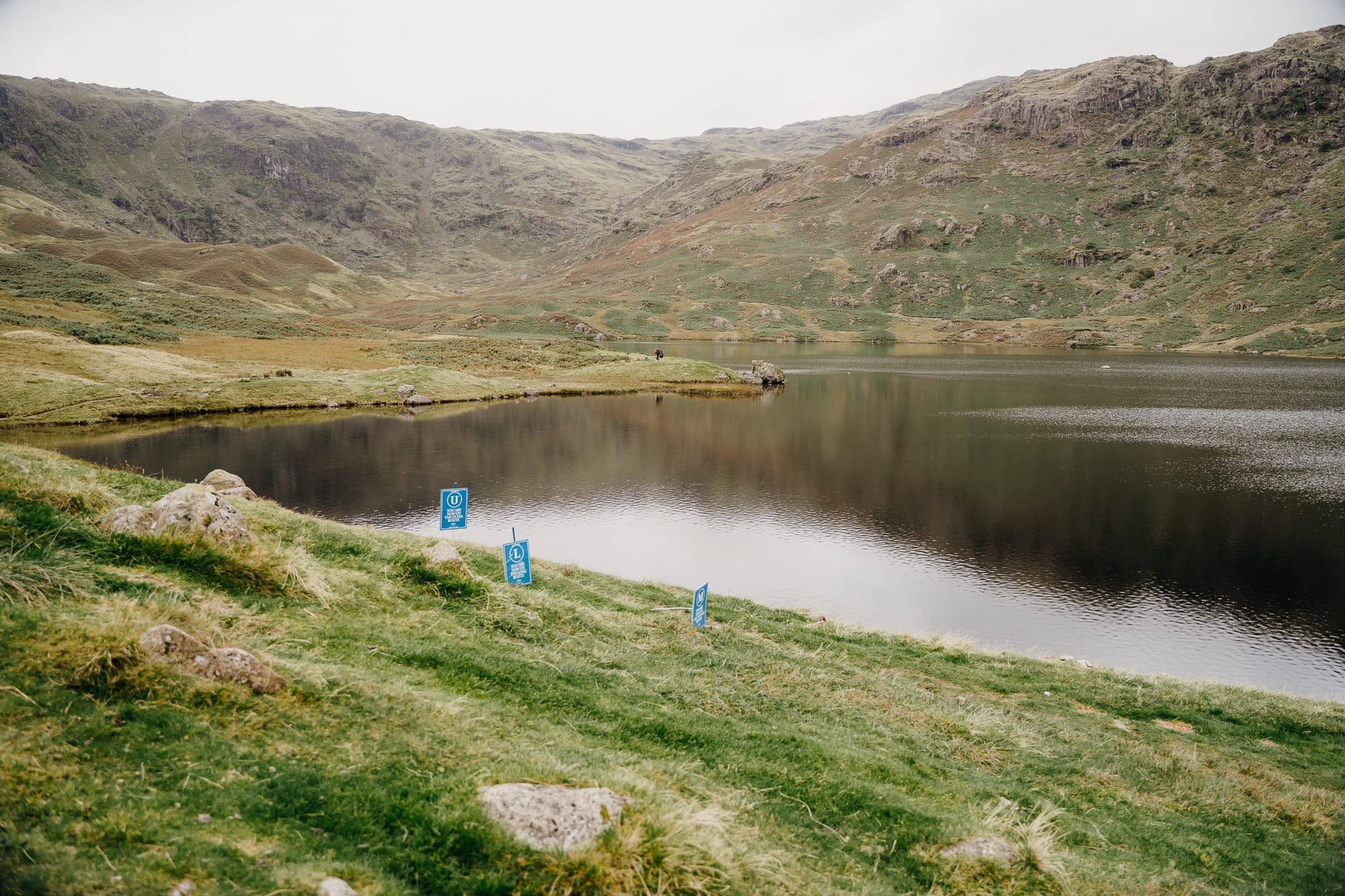
photos: maverick race
Probably. And I would not be lying, though for the life of me, I didn’t feel it at the time. I was frustrated. I was in pain. I saw more of my feet and the ground below me than the scenery. And in the attempt to “live in the moment” of the race, I didn’t actually live in the moment of…well, the place.
I whipped my phone out at the top of the big climbs, because I did want to have some sign for myself of having made it all the way up there. I wish that I’d said “fuck the race” more often and just admired the views.
Because who was I competing with, really? There was no time goal, and I was certainly not a contender for top three in any category.
There are metaphors there.
There are also metaphors in the swoop of joy in my belly as I took the downhill after that first climb at a gallop, free as a mustang and wild with speed, the exhilaration of soaring, and trusting my feet to catch me—
Running downhill is a matter of faith; if you lean back, step too carefully, you will wear out your muscles faster—you invite friction, put on the breaks. But if you lean forward, if you fight the fear that you will fall, you will, in fact, fly.
Granted, it’s easier to say that than to do that when the ground is uneven, covered in small pebbles the size of large pebbles, loose and skittering or worse, rocking—heh—beneath your feet, and sending your ankles in different directions.
There will probably be pain, and you will go on anyway. Because what choice do you have?
like i’m lord of the rings or something. and really, isn’t THAT the point?
“c. Think about how bad things could get: At the bottom of the diagram is a near death, a crucifixion, or some kind of transformation that is violent and traumatic. The hero emerges from this powerful experience changed. How? What physical manifestation of the hero’s new “gift” could you create?”
After the final aid station (20k/12mi), there was a second mountain. The “sting in the tail,” as the race description says. In comparison to the first climb, it was modest. Half the height at 341m.
But it was about a quarter-mile straight up. There were stairs cut into the rock, but that didn’t make it easier. Neither did running 13mi right before.
I felt like I was near death. More than once, climbing up, I said to myself, this is a death march. And there, look, the casualties, standing to one side, sitting on rocks, sweating and sipping from gels and bladders, looking balefully at each of us as we passed, their bib numbers clinging on desperately to shorts by the shred of paper and a safety pin.
With each step, the cramping in my legs intensified, and everyone I had left behind at the aid station, and baleful casualties caught up to me, then passed me on as both of my quads and calves spasmed on the side of the rocks.
I became a baleful casualty.
When I reached the top, I was alone again and missed the camaraderie—I felt abandoned, surrounded by hikers who had come up the other way, who didn’t understand that they were standing between me and salvation as I struggled to stick the dis-mount. Every step I took was an attempt not to crash into someone with their phone out, and I was losing dexterity with every minute—my feet were cramping, now, too, and every they flexed to hold my balance or wedge into a dangerous crevice, they seized into useless blocks.
Then, as I shimmied down a boulder, my abs seized up, too, and I had to force myself upright. There was no flying on this descent; it was too technical for me.
Was I transforming? I don’t know. But it felt violent, and traumatic. I was falling apart. Each cramp was a gun shot, sudden and snapping. Old knee injuries I hadn’t seen in months flared hot, hot, hot, hot.
But you go on.
What choice but to look up at a wall of rock and know that home and salvation are on the other side, and the only way out is over?
You can rest. You can take stock. But you must go on.
Was I changed? Yes. The race came with a physical manifestation of my new “gift.”
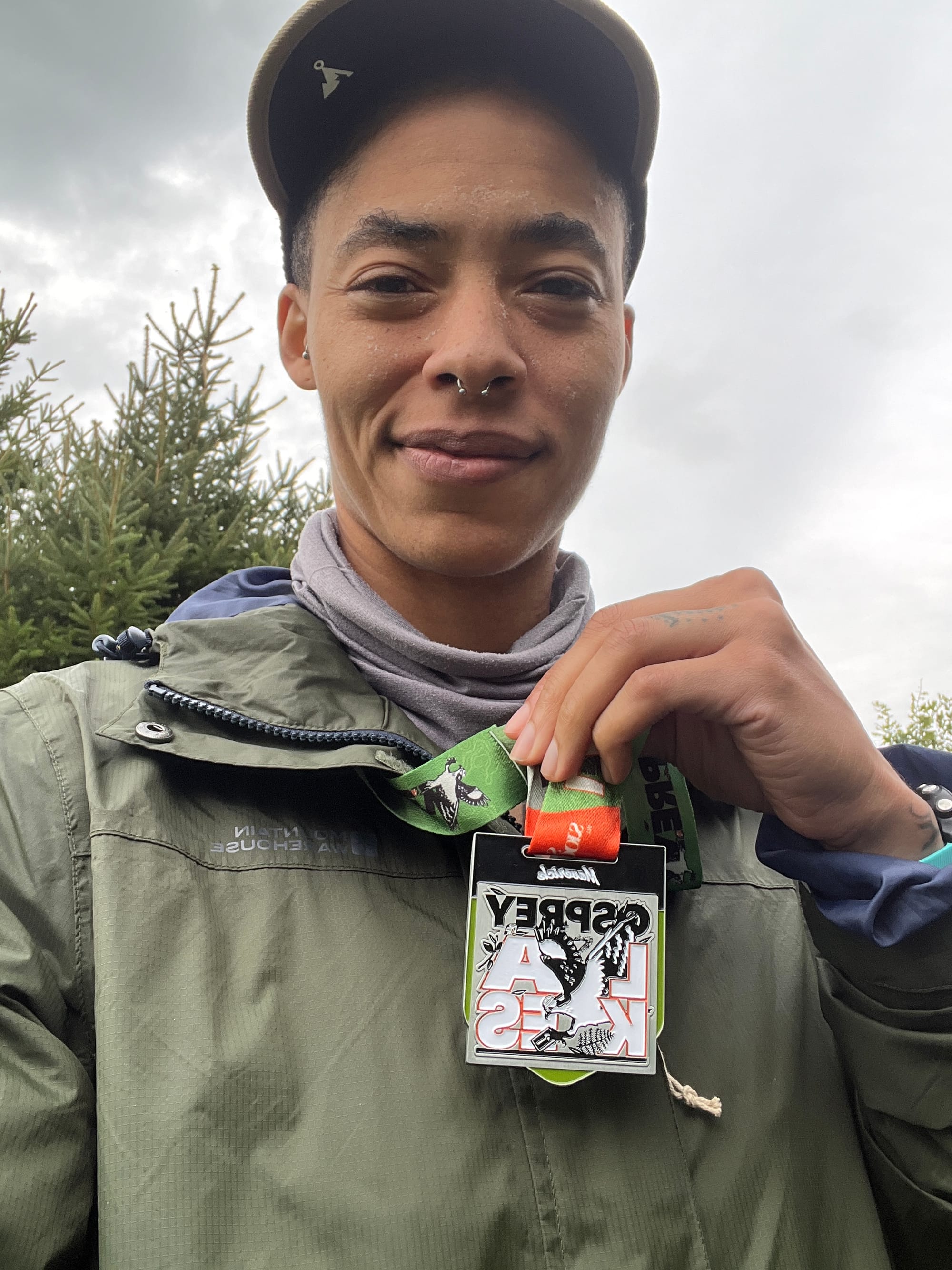
“d. When the hero returns to the ordinary world with his or her gift, it may take some time to restore the ordinary world to order. The hero still faces challenges. What are they?”
Apparently, the transformation is supposed to happen before, in that dark night of the soul. Maybe it did. Like I said, I don’t know. I think it’s like a forge. A piece of iron may change shape in the crucible, but it isn’t truly what it is until it’s cooled and sharpened.
In the heat of it, that trial of the last miles, I was certain I would never do this again. I had made a mistake; the distance was too long, I’d over-estimated my fitness, underestimated the training. I had disappointed myself in a hundred different ways, hindsight already highjacking the telling of the tale.
And when my friends and family asked me how it went, I couldn’t even answer. In between cramps that forced my whole body into a rictus on the post-race camp chair, I just sent pictures or audio messages that amounted to an exhausted raspberry.
It wasn’t until my return, as I moped around the house with new shin splints and aching muscles, that I went back to the website to remind myself what a category 5 race was:
A bit more info - These routes are the hardest we offer and with their extreme technical elements and gnarly elevation gain, it isn’t difficult to see why. The trails will be challenging whether you are running uphill, downhill or along the flat (if you can find any). Due to the time of year, our events with a rating of 5 take place then adverse weather conditions could certainly add to the obstacles presented.
And furthermore:
Finisher time expectations - We would expect your finishing time to be more than double that of a road race of the same distance. For a Maverick trail marathon with a rating of 5, we would expect a 3-hour flat road marathon runner to complete the route in 6 hours 30 minutes. It’s a tough day out, but one that will stick with you for a long time. Often described as ‘type 2 fun.’
Reading that, something shifted in me. A reminder not only that it was supposed to be hard, but that the struggle was no flaw in me. I, who had blithely told my partner I’d probably be done in 3-3.5 hours and then watched in panic as 3 hours came and went and I was only barely halfway—
I started to feel better. Less disappointed in myself. Less cowed by the terrain. I could appreciate where the training I’d done paid off. Running the flats, even after the climbs. Surviving the first climb. Running (most of) the (road) hills. Agility and stability work keeping me nimble. Gut training keeping me fed. I had done so much right. And even my finish time was normal.
I started to think about ways to do it better next year.
The answer isn’t to pick the shorter race.
It’s to slow down and embrace the struggle.
It’s to stop and look at the damn view.
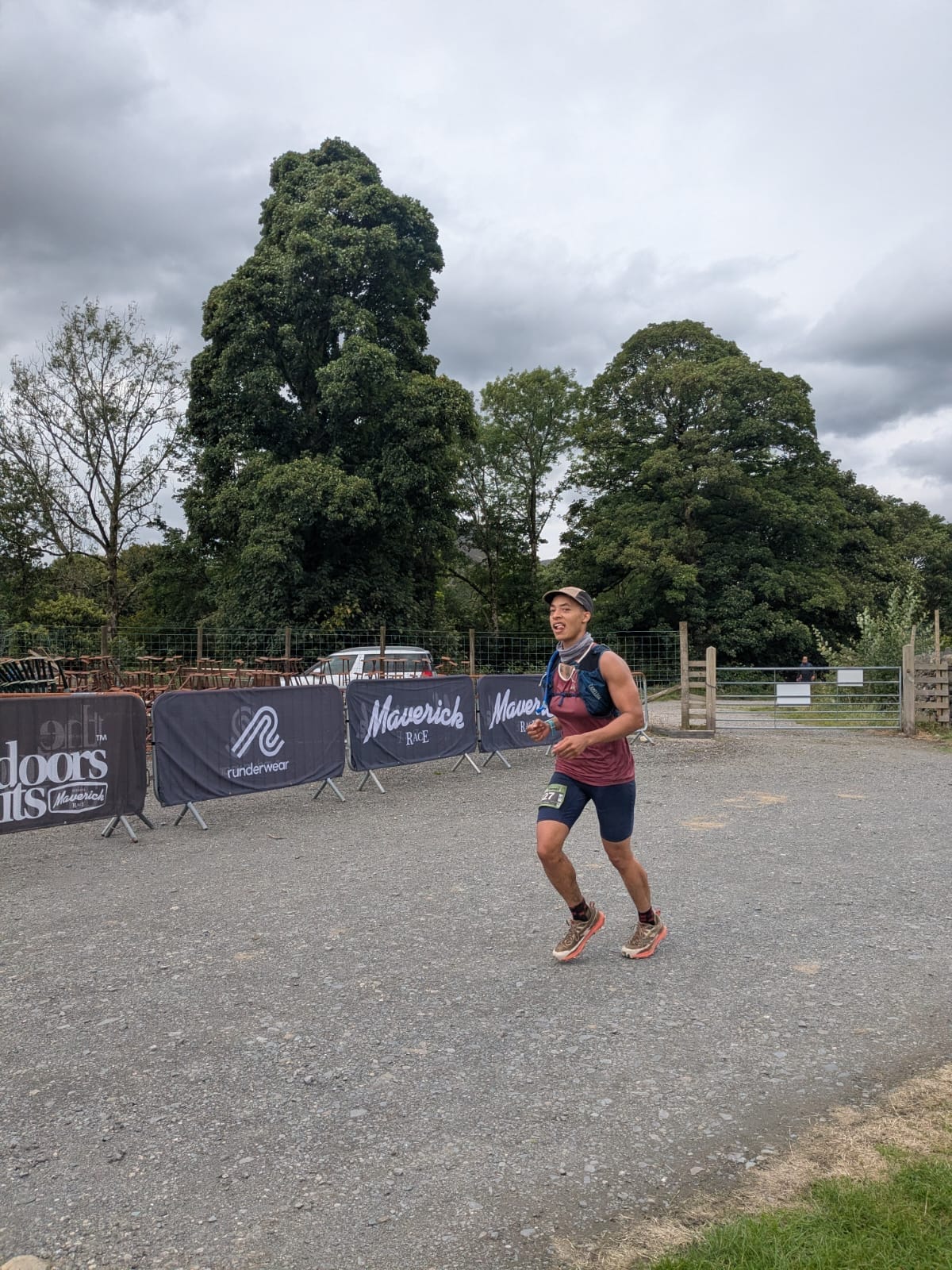
Thanks for reading this essay. Among all the other stuff up there and the stuff I’m still working through, this run was also part of my research for the next novella I want to write. The working title is fellrunner_d1.scriv. Wish me luck. 🫡
1. Sellers, Heather, The Practice of Creative Writing (Bedford St. Martins, 2017), 435.
2. Grace Curtis is also the author of two journey books that I highly recommend. There is even camping in one of them. Frontier. Idolfire. She also said that it was possible to visit the mountains and see the views without running. I dunno, sounds fake.

